Collaboration of hospitals, professionals and communities work to close gaps in lactation initiation and continuation
BATTLE CREEK, Mich. – A mother walked into the comfy confines of Milk Like Mine with her newborn son in her arms and a cooler in tow.
Inside the cooler were dozens of bags of extra breastmilk. The donations were brought into the Battle Creek, Michigan-based community birthing and breastfeeding service center during one of its “Baby Cafes.”
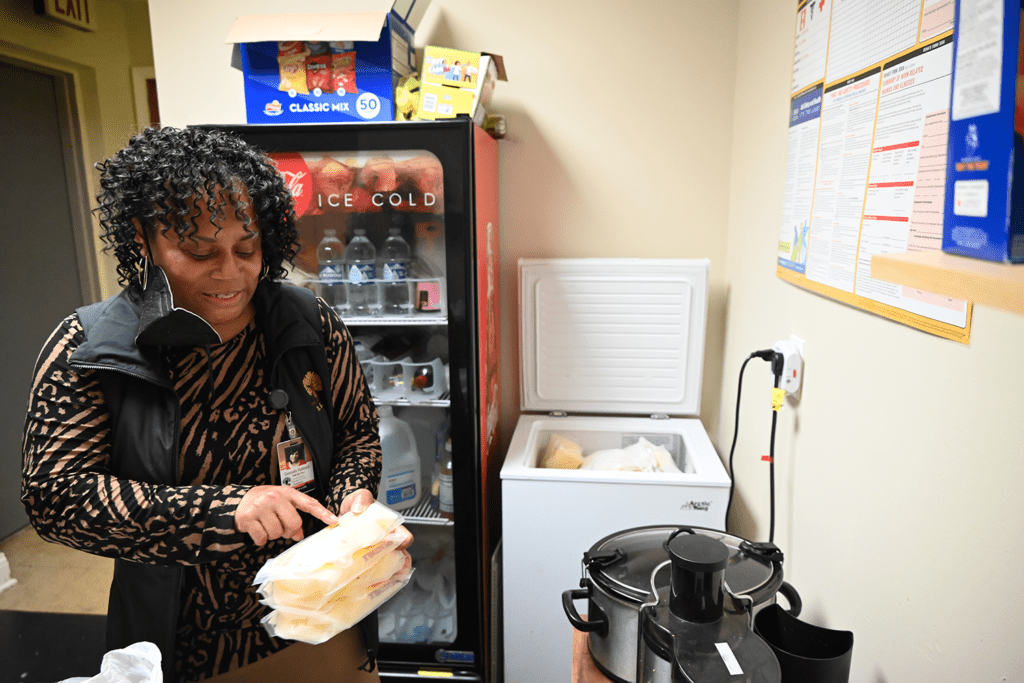
“We officially need another freezer,” said Rickeshia Williams, birth doula and executive director of the nonprofit. “We need to free up space and that’s a good problem to have.”
A handful of mothers and their children attended the Baby Cafe, a bi-weekly gathering of families, doulas and medical professionals who provide peer and expert support in a coffee shop-like atmosphere.
Alyssa Hall is expecting her second child and has been regularly coming to Milk Like Mine and its Baby Cafés following the birth of her now-10-month-old son, Heir’Von.
“I’m at a point in my life where I need a lot of support,” Hall said. “They have supported me through numerous ways beyond just my baby. And Heir’Von gets to be spoiled a little bit. He loves coming here.”
W.K. Kellogg Foundation grantees Milk Like Mine and Bronson Battle Creek Hospital are partnering to offer the drop-in Baby Café sessions, part of a broader effort to address healthcare inequities in the region by improving access to culturally congruent care for families.
“This partnership that we’ve had with Bronson has been able to bloom a good bridge between the services that we do; labor and delivery, doula work and lactation,” Williams said. “I think that our task force allowed us to create this friendship outside of business, where we are able to talk about things in real time that makes real change and makes a big difference for all the mothers and their babies who are coming into the world.”
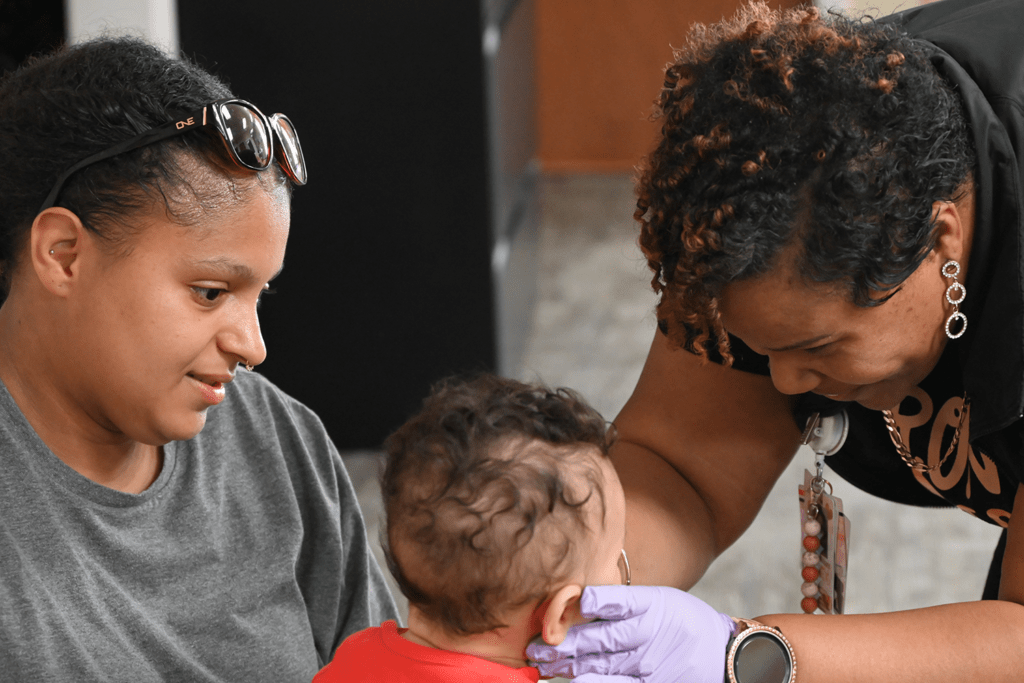
IMPROVING MATERNAL, CHILD HEALTH OUTCOMES
The benefits of breastfeeding for both babies and mothers have long been established. Yet lactation disparities still exist, affecting populations across multiple racial and ethnic groups.
According to the 2021 Michigan Pregnancy Risk Assessment Monitoring System (PRAMS) report, 90.8% of white, non-Hispanic mothers in the state initiated breastfeeding, compared to 86.6% of Hispanic mothers and 76.2% of Black, non-Hispanic mothers. The three-month breastfeeding duration rate drops to 61.1%, 50.2% and 37.7% for each respective racial/ethnic group. Other characteristics, such as maternal age, education, income, insurance and marital status show similar disparities in initiation and continuation.
With support from WKKF, Bronson Battle Creek Hospital and Bronson Methodist Hospital in Kalamazoo, Mich. each achieved “Baby-Friendly Hospital” designations from Baby-Friendly USA in April of 2024 due to improved birth outcomes and breastfeeding rates and experiences.
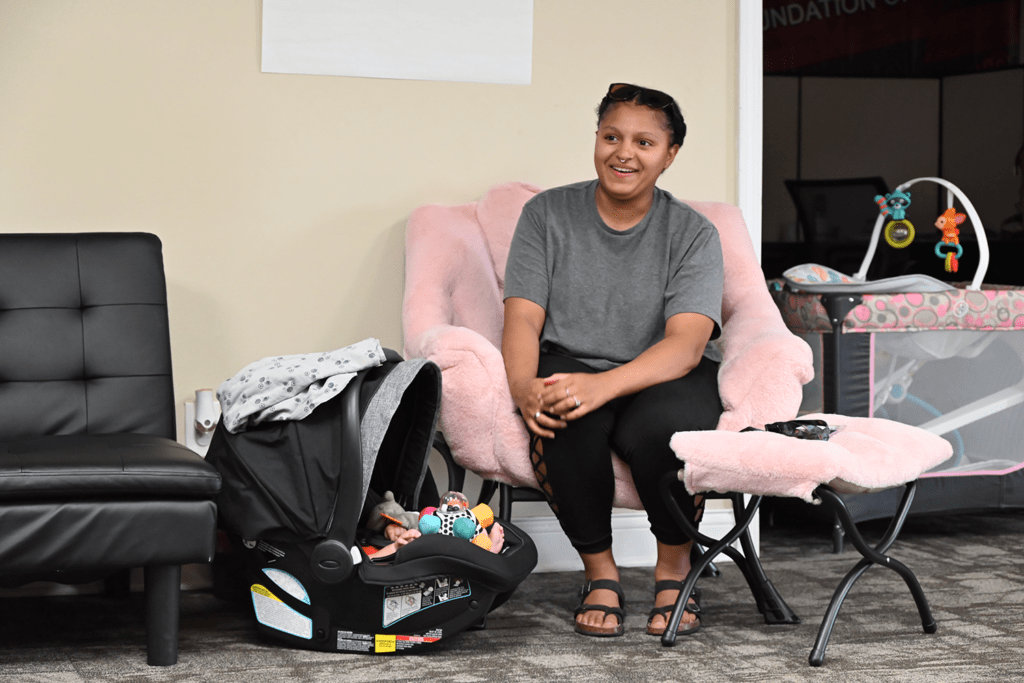
Building off the Baby-Friendly Initiative, Bronson Healthcare Group was awarded a $500,000 grant from WKKF to establish an equity and community informed professional peer support system to help families in Battle Creek and Kalamazoo reach their breastfeeding goals. That evolved into the partnership between Bronson Battle Creek and Milk Like Mine, as well as Bronson Methodist Hospital and the Kalamazoo nonprofit Rootead.
Dr. Marijata Daniel-Echols, program officer for WKKF, said the Baby-Friendly Hospital Initiative focused on breastfeeding initiation, but didn’t specifically address continuation after mother and baby leave the hospital.
“There’s lots of barriers for why folks don’t continue breastfeeding,” Daniel-Echols said. “They’ve got to go back to work, or they work in a place where they can’t pump… Or they don’t know how, or they have trouble and they don’t know where to go to for help. The Baby Cafe and that partnership with community where (mothers) are seeing folks they know and trust makes a huge difference.”
AN INCLUSIVE ENVIRONMENT
While breastfeeding is considered the gold standard for maternal and infant nutrition, Black women have lagged their peers in initiation and continuation rates due in large part to cultural and systemic barriers, including healthcare inequities and historical trauma, namely Black women who were enslaved being forced to serve as wet nurses.
The Baby Cafes are co-facilitated by Dr. Karen Garcia, a Bronson pediatrician and newborn hospitalist, breastfeeding medicine specialist and a WKKF Community Leadership fellow. As a Hispanic woman who is bilingual, Garcia helps bridge the gap for mothers who may face language or cultural barriers when it comes to lactation initiation and continuation.
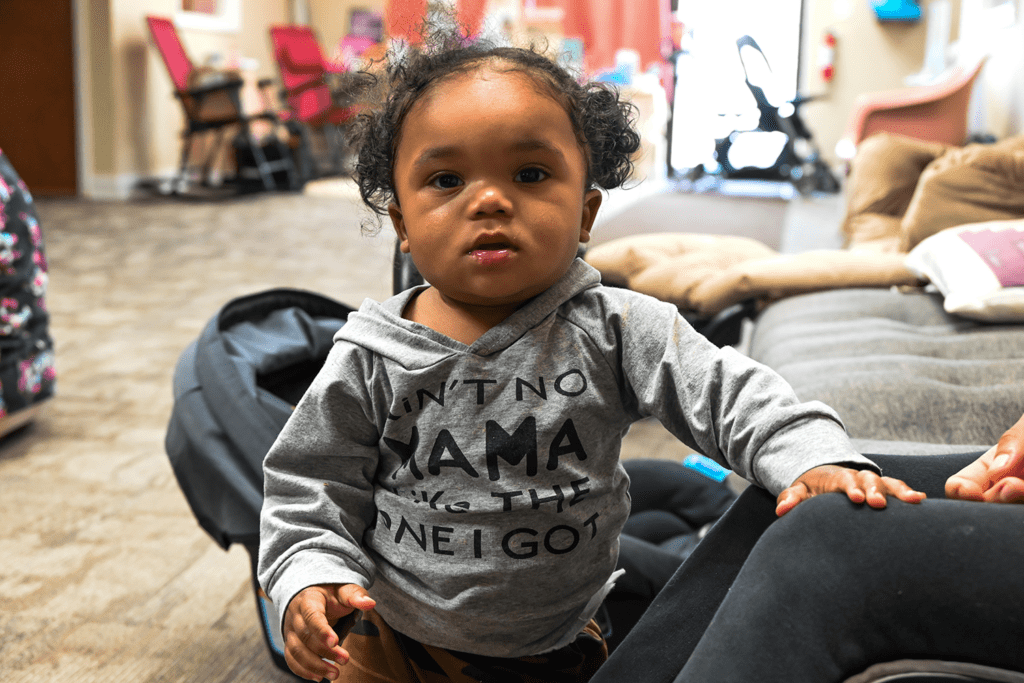
The bi-weekly Baby Cafes have also been made available to Calhoun County’s Burmese population with the aid of translators, hosted by Catching the Dream Learning Center at the Burma Center in Springfield.
“We have a really well rounded and well represented group of staff, myself being African American and the blend of some other things, and Dr. Garcia being Hispanic,” Williams said. “We have white and Black men and women. And being able to show a model that says we all can do it, if we’re all supporting each other, has made a huge difference.”
Jyla Caddell connected to Milk Like Mine through the federal WIC program, and now regularly attends Baby Cafes with her infant son.
“I try to make it to as many as I can,” Caddell said. “Everyone is very inclusive. They’re very informative. If I need any help, or if I have any questions, they will help me with anything.”
‘A DIFFERENT APPROACH’
Carol Fuller is the system director for women and children’s services at Bronson Healthcare Group. She first became acquainted with Williams through an initiative that sparked collaboration between communities and hospitals. That segued into the partnership that birthed Baby Cafes in Calhoun County, the first of its kind in southwest Michigan.
“It’s really meant to be a community project,” Fuller said. “We have the opportunity, through the Baby Café, to be out in the community locations that are underserved…. That’s the beauty of this partnership, it’s that we’re hearing from the community now.
“It’s really about the coming to the table as equals. And I don’t know that we ever did that before. I’ve been in this field for a really long time. And I’ve been involved in other community groups, but we never really got to a partnership. It’s really about having crossed that line, where now we’re working together with mutual goals. It’s just a different approach. And it benefits our patients and families because it’s a constant coordinated effort.”

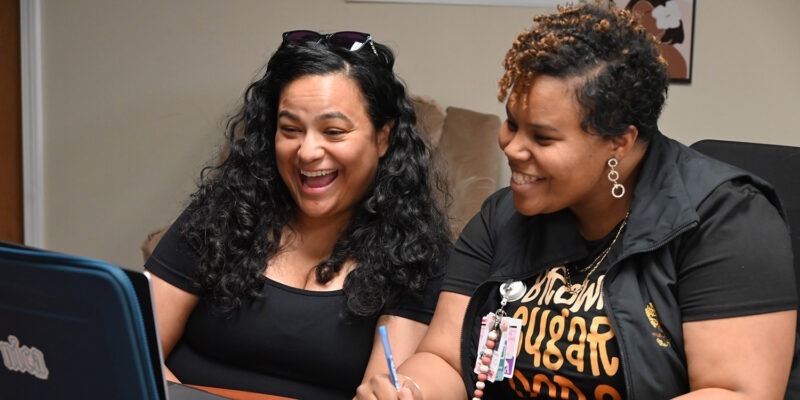
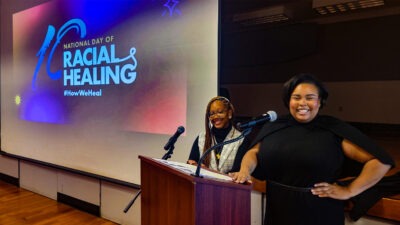
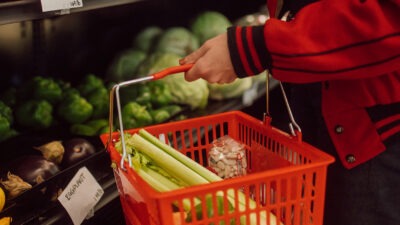
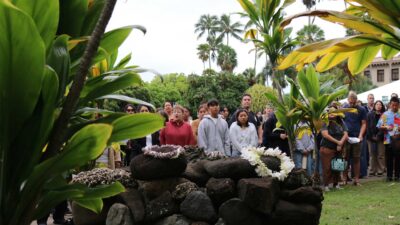
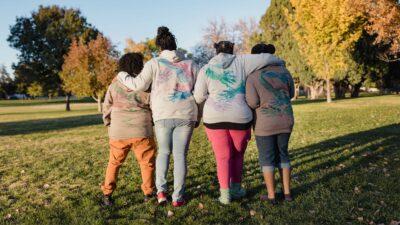
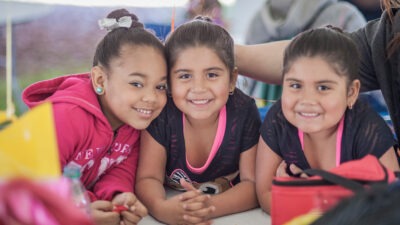
Comments